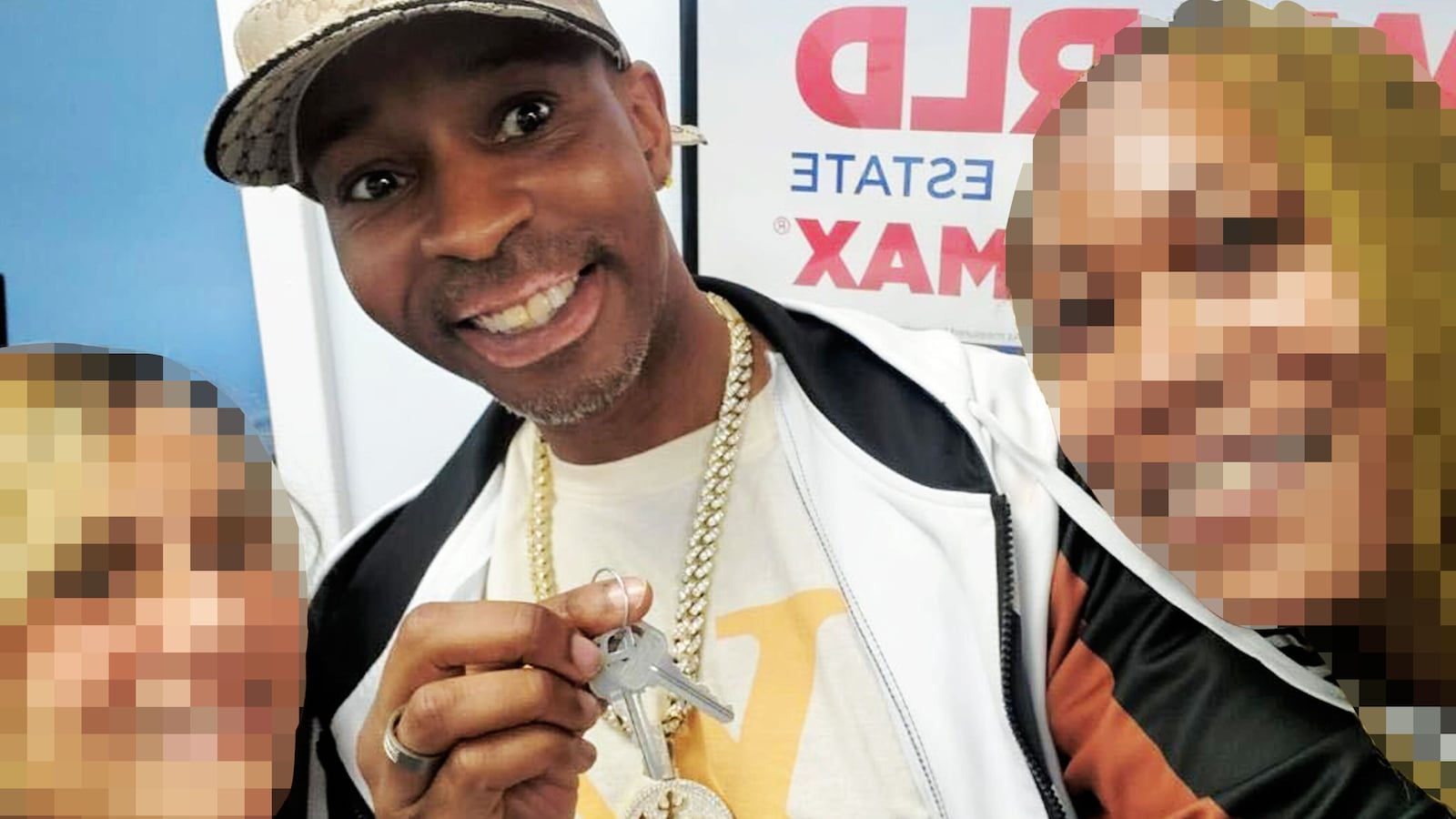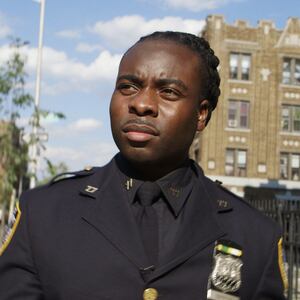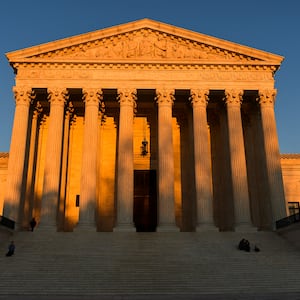A Black man who spent 24 years in prison after being wrongfully convicted of double homicide is now suing the city of New York and a team of police officers for allegedly threatening him into making the false confession that landed him behind bars.
George Bell’s conviction—and life sentence without parole—were dismissed in 2021 after new evidence surfaced proving his innocence. His attorney, Richard Emery, blamed Bell’s botched conviction in the 1990s on a variety of factors, including a biased media, then-Mayor Rudy Giuliani’s poor crime strategy, and the city’s flawed justice system, claiming it targeted Black and brown people.
“It was a rush to judgment with political forces behind that judgment,” Emery told The Daily Beast.
In a complaint filed June 2 and reviewed by The Daily Beast, Bell requested at least $50 million in compensatory damages and punitive damages to be determined at trial.
In December 1996, Ira “Mike” Epstein and NYPD Officer Charles Davis were killed in a murder-robbery at a check-cashing business in Queens, according to the complaint. Epstein owned the business, and Davis served as a security guard while off-duty from the force. Authorities immediately launched a “manhunt” for the killers, with Giuliani and NYPD officials vowing they “would not rest” until they’d found those responsible.
“[Giuliani] was very much pandering to tabloids and to the communities that he thought would back him up and elect him. Of course, he was right,” Emery said. (The New York Daily News regularly referred to Bell as a “crybaby” murderer after his conviction.)
“Crime was very serious [at] that time. He was seeking to back a police force that was making…clearly false prosecutions based on bad police work.”
The Daily Beast was unable to reach Giuliani for comment.
Though there was a local gang known as “Speedstick” that had committed similar offenses to the robbery-murder, police focused their attention on other suspects, the complaint states.
That December, a drug dealer in the area, John Bigwe, was arrested for selling cannabis. Police told him he would face serious consequences—including being deported to his home country of Haiti—if he did not cooperate with their investigation, according to the complaint. Bigwe implicated Bell, the complaint alleges, because his girlfriend previously had an affair with Bell. The complaint says the police tricked Bell into going to the jail to help a friend who had been arrested. There, Bell was violently interrogated by officers, according to the complaint.
“[It was the] pressure and political environment that pressed the cops to pick a suspect who was a convenient suspect for them, but not the right one,” Emery said. “And of course, once they pick a suspect, they don’t look at anybody else. They were just single-mindedly focused on George. …They never let up, they beat George into submission and coerced a confession.”
Bell, 19 at the time, was charged with capital murder. He had no criminal record, and the complaint states that the interrogating officers did not read his Miranda rights before his arrest.
The cops allegedly screamed in Bell’s face, pulled out his hair, vowed to “put him in the fucking hospital,” and claimed he would never see his family again if he did not cooperate, according to the filing.
The complaint says no physical evidence ever tied Bell to the double-homicide. But evidence kept pointing to the Speedstick gang before Bell was placed on trial, according to the lawsuit.
Emery told The Daily Beast he felt Bell’s race played a part in the unjust treatment he received.
“The racism of all of this was palpable and most assuredly the fact that most of the victims of false convictions, an overwhelming number, are Black men,” he said. “George was a victim of racial stereotyping at least, if not direct racial antipathy.”
The NYPD declined to comment on the matter.
During his trial in 1999, Bell was convicted of the murders. Authorities offered him a plea deal that would allow him to avoid the death penalty if he gave a confession, but Bell maintained his innocence. The jury ultimately declined capital punishment, and he was sentenced to life in prison without the possibility of parole. On June 29, 1999, the New York Daily News reported that a jury had “spared crybaby killer George Bell.”
After the Queens’ District Attorney’s Office formed its Conviction Integrity Unit in 2020, it discovered that loads of evidence relating to Speedstick had purposefully been withheld at trial. According to the complaint, a member of the gang even admitted to participating in the murders in 1997. In 2021, Bell’s conviction was overturned, and he was ultimately cleared entirely. Authorities just chalked it up to a “good-faith mistake,” according to the complaint.
But that’s not an adequate explanation for the now-44-year-old Bell, who wants retribution after spending more than half his life incarcerated. After stays in multiple detention facilities and accusations of being a snitch among other convicts, Bell “kept pressing any people who might help him,” according to his attorney.
“He was able to prevail,” Emery said. “He knew he was innocent throughout, and his family was very close with him and backed him up a hundred percent.”
Along with Bell, Gary Johnson and Rohan Bolt made false confessions in the murders. Their convictions in the murders were also overturned, The New York Times reported. Collectively, they served nearly 75 years in prison.









